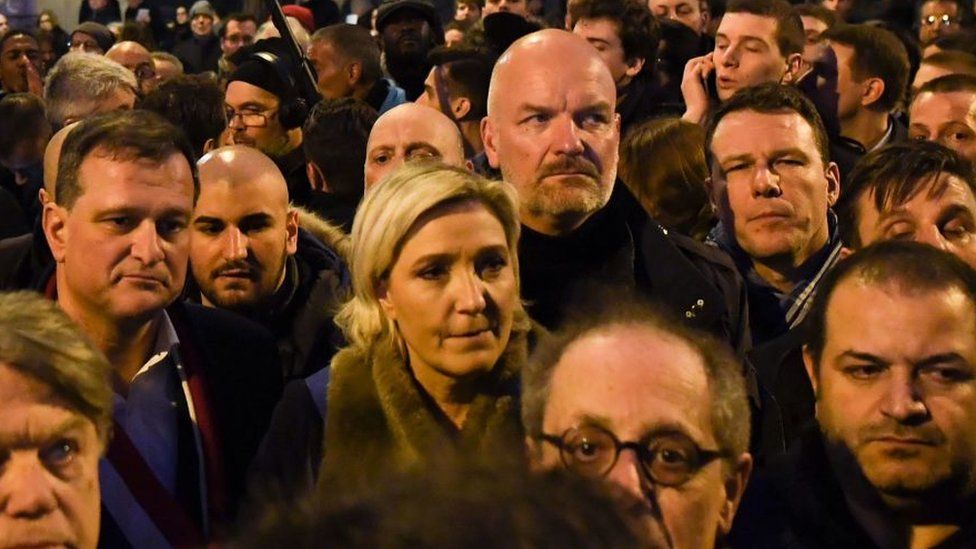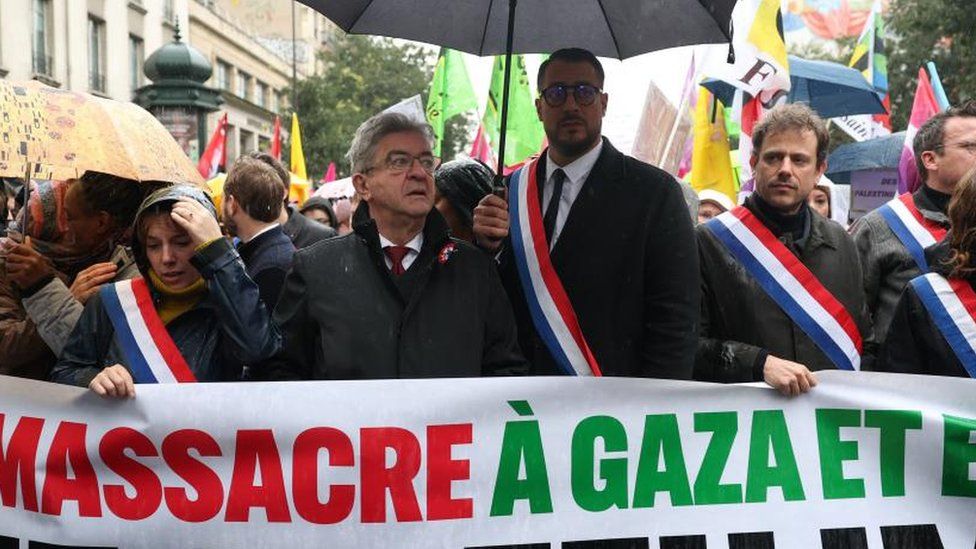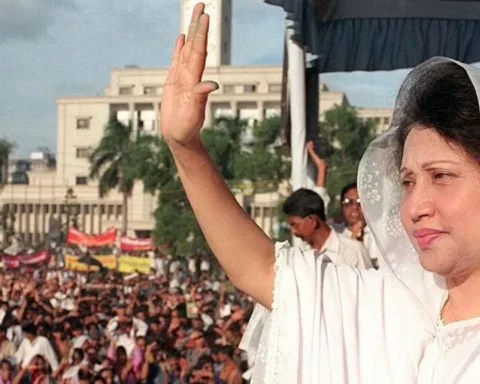Something unprecedented is happening this weekend in Paris, brought about by the war between Israel and Hamas and its spill-over in Europe.
For the first time ever, a major demonstration being attended by representatives of the major political parties includes the far right – but not the far left.
On Sunday afternoon thousands of people heeded a call from the Speakers of the two houses of parliament to show their support for French “Republican” values and their rejection of antisemitism – this in the face of a steep rise in antisemitic actions since 7 October.
Among the first to announce their presence were Marine Le Pen, three-time presidential candidate for the National Rally (formerly the National Front), and the party’s young president, Jordan Bardella.
Almost simultaneously came a rejoinder from their counterpart on the far left, Jean-Luc Mélenchon, irascible leader of France Unbowed (LFI). His party would not be attending, he tweeted, because the march was a “rendezvous for unconditional supporters of the massacre [of Gazans]”.
It is hard to overestimate the symbolic significance of this switch-over.

For decades French politics erected a bulwark against the far right, whose views – not least on Jews – were deemed “anti-Republican”. The old National Front under Marine’s father Jean-Marie Le Pen was seen as beyond the pale, and it was shunned.
The far left meanwhile – the Communists, the Trotskyists and the new formations like Mr Mélenchon’s LFI – were certainly attacked for their views, but they were never excluded. They were part of the broad political family, in a way that the Le Pen franchise clearly wasn’t.
A few years ago, for a far-left party not to have been part of a march against antisemitism would have been unthinkable. For a far-right party to have been there instead would have been unconscionable.
Such is the shake-up in the political order, which of course long predates the Gaza war and is mirrored in varying ways across other European countries.
Today’s far right, rebranded “hard right” or “national right” has – in France at least – forgotten its obsession with Jews and its claims of a “Jewish lobby”. Its primary focus now is the three I’s – immigration, insecurity and Islamism – issues on which it finds common cause with many Jews.

Meanwhile the far left in France, analysing Gaza through the anti-colonial lens, sees an oppressed people hammered by a superpower proxy and shouts “Solidarity!” Having lost the support of the old working class, many of whom vote National Rally, it has a new natural base among politicised immigrants.
Thus we arrive at the novel situation where a party whose founder once called the Holocaust a “detail of history” openly embraces the cause of French Jews; and at the other end of the spectrum, a party built on ideas of human rights and equality stands accused of antisemitism for failing to call Hamas “terrorist”.
Maybe this should all be nuanced. After all, many people still think that at heart the far right, by virtue of its French-first ethos, cannot help but be anti-Jewish. They note that Jordan Bardella this week refused to explicitly call Jean-Marie Le Pen antisemitic – a faux-pas to which enemies of the National Rally (RN) have reacted with glee.
And on the far left there are signs of division around Jean-Luc Mélenchon, whose prickly personality and autocratic methods are driving some colleagues to exasperation. This week one senior lieutenant, Raquel Garrido, was given a four-month suspension as party spokeswoman for challenging the leader’s line – not least on Hamas.
But the fundamental point remains: the RN under Marine Le Pen is manoeuvring itself very successfully into the mainstream, while Mr Mélenchon’s LFI is manoeuvring itself out.






